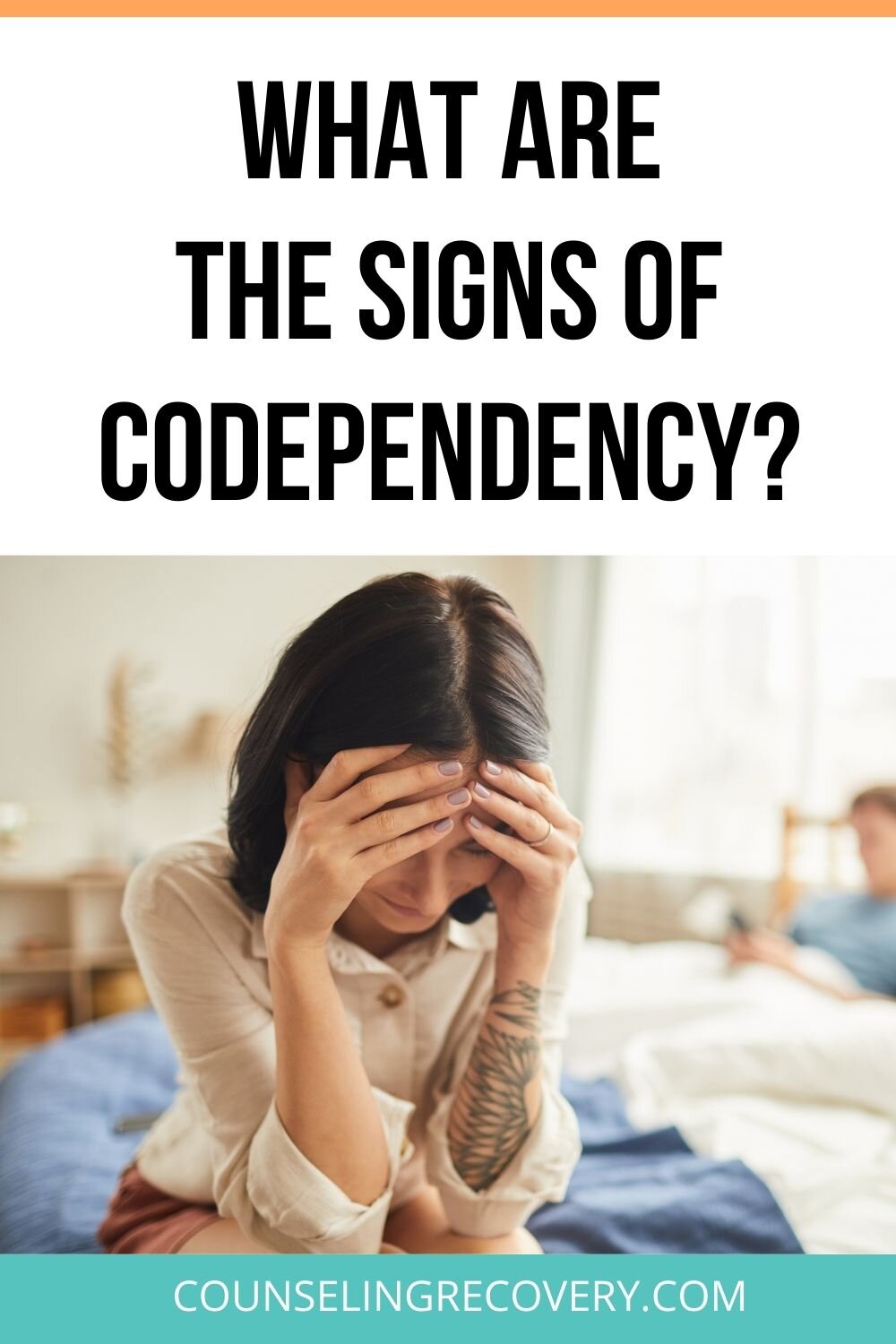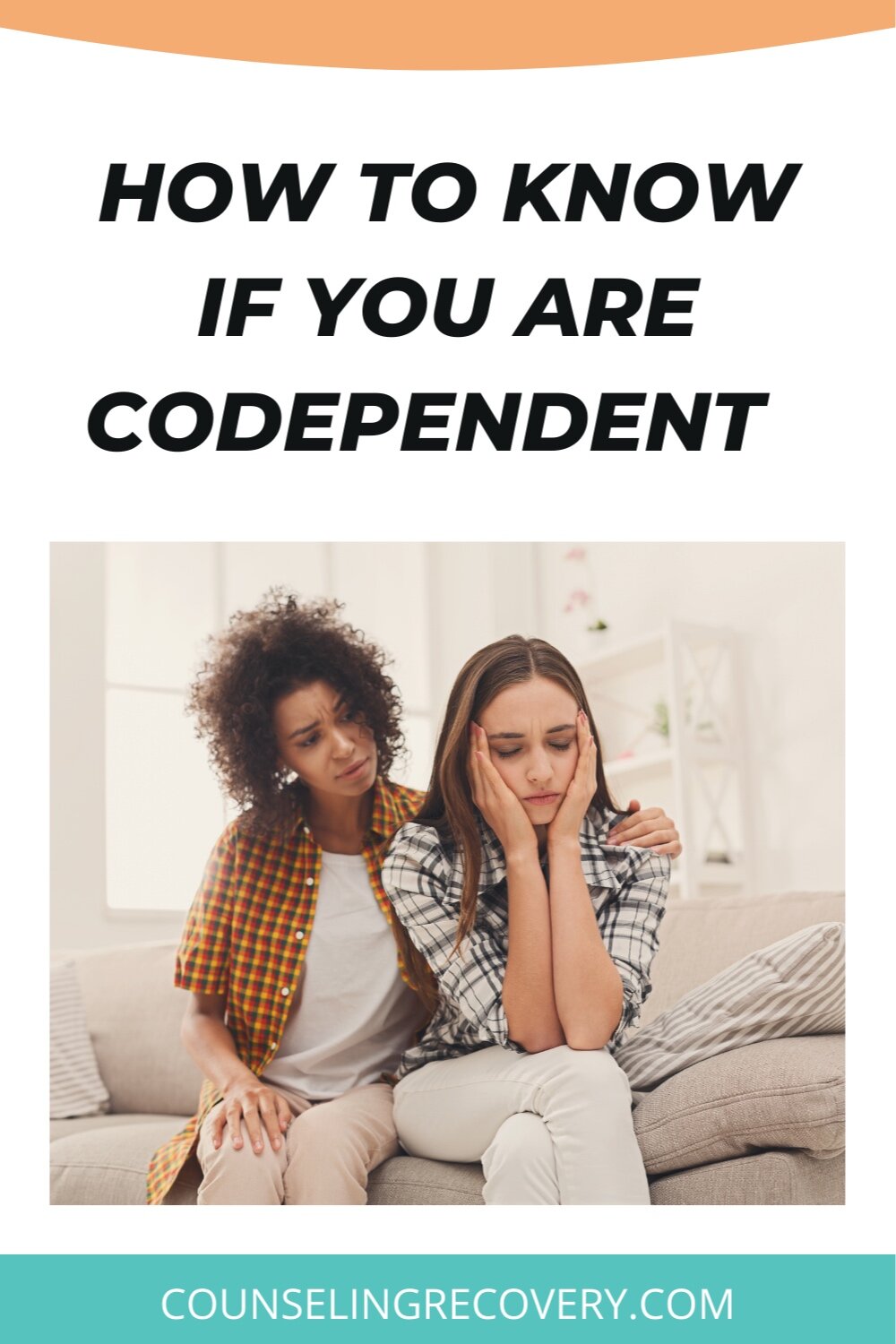What are the Signs of a Codependent Person?
You may have heard the term “codependency” used, and perhaps you’ve wondered if you could be considered codependent. In its simplest form, codependency is being overly focused on helping, rescuing or controlling others at your own expense.
A codependent relationship is one where two people become so invested in each other that they can't function independently from one another.
So how do you know if you’re struggling with codependency? There are seven key signs of a codependent person to look for.
When you're unsure what codependency is or how it impacts you, you’re missing a major piece of your relationship puzzle. Codependent relationships are more difficult than they need to be because you don’t know whether to fix the other person or yourself!
What are the signs of a codependent person?
It’s easy to feel overwhelmed by all the signs and symptoms of codependency. The behaviors impact all of our relationships starting with the one you have with yourself.
Codependency affects how we feel about ourselves and the kinds of relationships we attract. If you struggle in your relationships or setting boundaries and trusting yourself this article is for you!
While some codependent traits are well-intentioned, they ultimately hurt our self-esteem and ability to create unhealthy relationships. Though codependency impacts several areas, there are seven core traits that you need to look for in order to heal.
1. A codependent person’s self-esteem is based on what they do, not who they are.
People who are codependent base their self-esteem on what they do for others. In other words, they get their value from external sources instead of trusting themselves. This could be a relationship, a job, a volunteer position or even their relationship status.
As a codependent, you define your worth on things outside of you, especially what you do for loved ones. What other people think of you becomes the primary focus which sets up a host of codependent behaviors like being overly dependent, people pleasing, not setting boundaries, and putting your needs last.
2. Codependent people don’t know what they need or want.
When you’re codependent, you focus on external things to validate you. Because your’e always attending to other people’s needs first, it’s difficult to know what you want or need. As a result, you dismiss your own needs as being unimportant.
On the other hand, you’re great at knowing what everyone else wants, but neglect yourself in the process. You are too busy focusing on others to understand what you need.
As a result, you become a chameleon, changing who you are to fit the situation. You see what others want and change your values in order to be accepted in that group. Eventually, you start to feel invisible in relationships because you lose touch with who you are.
3. Codependents lose themselves in relationships.
Codependent people only feel secure when they have other people’s love and approval. As a result, they become dependent on that approval in order to feel good about themselves.
A codependent person’s happiness depends on how others feel. For instance, if your partner is happy, you’re happy, but when they are upset, you feel anxious. You feel compelled to fix it, which leads to issues of frustration and control.
In codependent relationships, there is an intense dependency on other people which starts to backfire. Instead of feeling connected, the other person starts to feel smothered. Eventually, this leads to “ghosting” the relationship where the person leaves without explanation.
4. Codependent people can’t say no or set boundaries.
Setting a boundary feels scary because when you’re codependent, you’re afraid to upset other people. As a result, you don’t admit to painful feelings, especially anger and resentment.
You can’t be honest when someone hurts your feelings because you don’t want to risk conflict. Over time this creates anxiety and overwhelm that makes life much more stressful.
5. Codependent people attract difficult people.
When you are codependent, you tend to attract people who are narcissistic, alcoholic, or have otherwise difficult personalities. These people make you feel needed, exactly what the codependent person wants; this is how you get your value.
6. People who are codependent have a hard time letting go of people.
Codependent people stay in relationships no matter how much it hurts. They don’t realize that not every relationship is meant to last forever. An intense fear of abandonment usually keeps them holding on tight. Because of this, they will put up with abuse because it’s easier than being alone.
Codependent relationships are naturally more intense which makes them difficult to maintain.
7. Codependents tend to expect perfection from themselves and others.
Because the codependent person gives so much, they expect others to provide the same amount. This creates confusion because they don’t verbalize their expectations.
The codependent person wants more than anything to avoid conflict but the frustration of being silent eventually leaks out in passive aggressive behaviors. Giving someone the silent treatment or making indirect comments become habitual responses.
When a codependent person makes a mistake, it triggers intense shame. They don’t have realistic expectations of themselves. They think they have to be perfect in order to be loved or to matter.
What causes codependency?
Codependency is a learned behavior. Some experts even believe the seven signs of a codependent person form as early as age five.
Traditionally, codependent people grew up in homes with alcoholic parents, but now we understand it comes from caregivers who are emotionally unavailable due to their own personal issues.
As a result, the child’s experiences are invalidated which creates shame or low self-esteem. These patterns carry into adulthood and cause people to form codependent friendships and romantic relationships.
How do overcome codependency?
Recovery from codependency is possible, although it may take time because the beliefs, patterns, and behaviors are so ingrained in our way of life.
Acknowledging you are in a codependent relationship, or relationships, is often the first step in healing. Begin by taking better care of yourself, assessing your relationships, and figuring out where you may need to set boundaries. If you choose to start on your own, I have a workbook of codependency recovery exercises that may be beneficial here or many free resources on my site.
I often explain to my clients, many resources available such as group programs like Al-Anon or CODA, or even individual counseling sessions with a trusted therapist or coach. I’m accepting new patients for virtual sessions at this time; you can learn more and schedule an appointment here.
You may also like:


